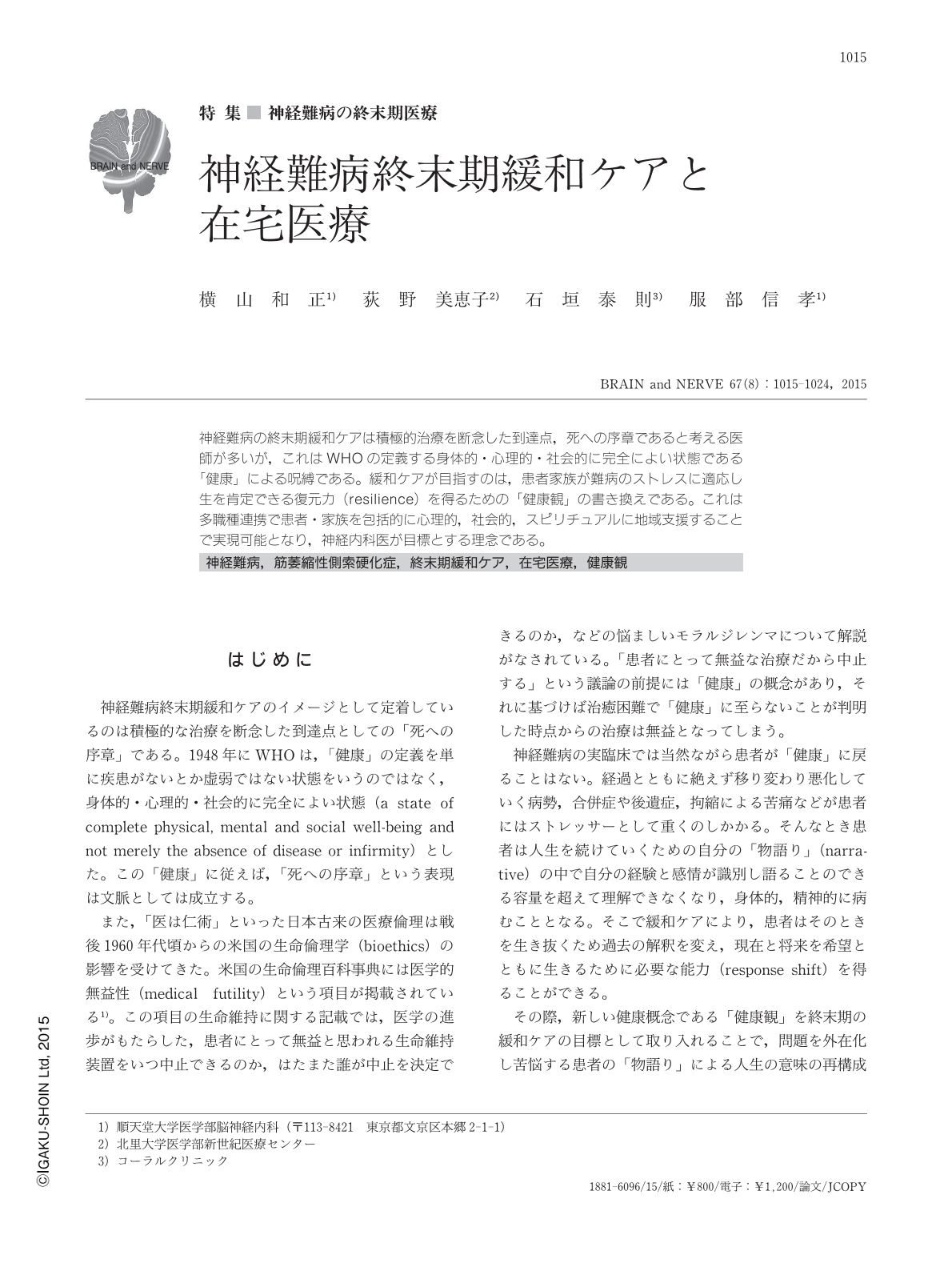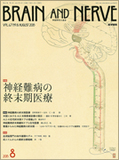Japanese
English
- 有料閲覧
- Abstract 文献概要
- 1ページ目 Look Inside
- 参考文献 Reference
神経難病の終末期緩和ケアは積極的治療を断念した到達点,死への序章であると考える医師が多いが,これはWHOの定義する身体的・心理的・社会的に完全によい状態である「健康」による呪縛である。緩和ケアが目指すのは,患者家族が難病のストレスに適応し生を肯定できる復元力(resilience)を得るための「健康観」の書き換えである。これは多職種連携で患者・家族を包括的に心理的,社会的,スピリチュアルに地域支援することで実現可能となり,神経内科医が目標とする理念である。
Abstract
Many medical doctors regard the end stage and palliative care of neurological intractable diseases as the point at which aggressive treatment should be interrupted and death is imminent. However, the definition of health by the World Health Organization as the physical, psychological, and social goal to achieve a fully favorable health condition should be revisited. In the real clinical setting, the health condition, as the ability to adapt and self-manage in the face of social, physical, and emotional challenges with the aim to overcome stress (resilience), is dynamic and involves a healthy condition and satisfaction with one's own living. The most important step in palliative therapy that is shared by neurologists is the maintenance of the health status with the help of multi-disciplinary team with the view to improving the quality of life.

Copyright © 2015, Igaku-Shoin Ltd. All rights reserved.


